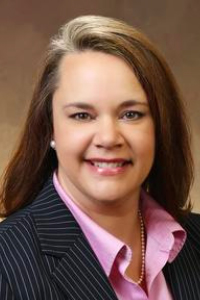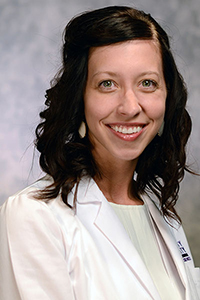The Changing Landscape of Training Physician Leaders

Health systems science, community health centers and KCU
By Marci Nielsen, PhD, MPH
The field of medicine is rapidly changing. Scientific innovations are bringing new discoveries and treatments for patients, even as the demands of rising health care costs make news headlines. As leaders, physicians are expected to deliver high quality care, and to drive health system change, too. Are they prepared? Is medical education keeping up? Are physicians able to respond to the seemingly constant change in how we pay for and deliver care?
Although medical students in the U.S. are well trained in the latest biomedical treatments, just a minority of them are trained to understand and lead health delivery reform, despite immense pressure to do so. In fact, most students graduate from medical school with little to no formal education in the business of health care delivery, medical economics, health policy or the social determinants of care.
Collectively referred to as health systems science, these non-medical components of care delivery are increasingly critical to medical practice. But including them in an already full medical school curriculum poses a challenge, as does finding qualified faculty able to teach the courses. And yet knowing how to help patients navigate the health system can lead to better health outcomes and enhanced patient engagement.
Anne VanGarsse, MD, KCU assistant dean for Clinical Affairs, assistant professor of pediatrics and faculty member, aims to expose students to health systems science, as well as inspire passion in for caring the underserved. Beginning this academic year, she is piloting the creation of a Community Health Center (CHC) track for third-year medical students in partnership with three Federally Qualified Health Centers (FQHCs) in Kansas City.
 "Their eyes have been opened to the struggles that uninsured patients face; they are learning so much."
"Their eyes have been opened to the struggles that uninsured patients face; they are learning so much."
- Anne VanGarsse, MD
A critical part of the U.S. “safety net,” FQHCs provide comprehensive primary care to underserved communities across the US. There are several FQHCs in the Kansas City and Joplin regions. In addition to her faculty role, VanGarsse serves as the chief health officer at the Health Partnership Clinic located in Olathe, Kan. As such, VanGarsse knows firsthand that, although FQHCs receive federal funding, they are often under-resourced given the significant health needs of the communities they serve. Despite this, they are often at the forefront of value-based care and quality improvement efforts, implementation of team-based care, and promotion of population health and social determinants of health.
“This is the first year that we have had students in the CHC track. Their eyes have been opened to the struggles that uninsured patients face; they are learning so much,” said Dr. VanGarsse. Students are completing required clinical clerkships at one of the three FQHCs in the Kansas City region, as well as participating in three one-month long “selectives”. These include: value-based care delivery; population health; quality improvement; addictions medicine; oral health; integrated health care; and other health system science topics.
In addition, the CHC track students participate in longitudinal learning opportunities where they are included as team members in one of the FQHCs. According to the Agency for Healthcare Research and Quality (AHRQ), these kind of longitudinal, integrated clinical clerkships represent a new and rapidly growing approach to improving continuity of care while promoting greater patient engagement.
Just months into their experience, the third year KCU medical students are learning that clinical knowledge is not the only thing that impacts patient care. “Making the correct diagnosis is only the first step in helping a patient, and many of the roadblocks that we encounter are related to health insurance, delivery and economics,” according to Dr. Nathan Moore. He cites research that suggesting that most medical students want more exposure to health systems materials during medical school. The KCU students in the CHC track are getting just that.
 Brittany Dahlager, third-year KCU medical student, discovered just how difficult it can be for patients to navigate our confusing health care system. In just her first week at the Health Partnership Clinic, three uninsured patients were found to have undiagnosed breast or uterine cancer. Working with nurse practitioner Amalia Almeida, Dahlager called three different hospitals in the area in an attempt to find treatment for one of the uninsured patients – that patient was also undocumented. After being told by one of the hospitals that “the patient should go back to her own country," Dahlager was next going to call the consulate to see if there were any resources available for the patient there.
Brittany Dahlager, third-year KCU medical student, discovered just how difficult it can be for patients to navigate our confusing health care system. In just her first week at the Health Partnership Clinic, three uninsured patients were found to have undiagnosed breast or uterine cancer. Working with nurse practitioner Amalia Almeida, Dahlager called three different hospitals in the area in an attempt to find treatment for one of the uninsured patients – that patient was also undocumented. After being told by one of the hospitals that “the patient should go back to her own country," Dahlager was next going to call the consulate to see if there were any resources available for the patient there.
VanGarsse is encouraged by the potential for this kind of learning. “This is why I am passionate for this track. These type of experiences are forever changing the type of physician this student will become.”
The Accreditation Council for Graduate Medical Education (ACGME) has recently added Systems- Based Practice as a core competency that all medical residents are expected to demonstrate. Beginning in 2020, the ACGME will be the single entity responsible for accrediting graduate medical training programs (i.e., internships, residencies and fellowships) for all physicians in the U.S. – allopathic and osteopathic alike.
This new core competency focuses on the “underpinnings of health care in a good medical practice: safety and quality in health care, physician advocacy, health insurance, health care economics, transitions of care, different health care systems, pay for performance, patient centered medical home, and chronic care."
According to authors from the New England Journal of Medicine, “from the moment a physician makes an appointment with a new patient, he or she is participating in systems-based practice. Therefore, residents must be aware of the health care systems in which they will operate and have the ability to provide high-quality, cost-effective medical care in the context of these systems and their attendant resources."
As KCU expands to offer additional health professions programs, tracks like CHC led by VanGarsse are expected to grow in both Kansas City and Joplin. These kinds of learning experiences will help prepare KCU medical students for their residency programs, as well as the real world challenges of becoming physician leaders. Both our students, and their patients, will benefit.
1 https://www.aamc.org/download/471414/data/ciic03-10oct2016.pdf
2 https://www.ahrq.gov/professionals/education/curriculum-tools/population-health/satterfield.html
3 Moore, N (2016). Curriculum in Context. AAMC. October. Downloaded on Sept 29, 2017 at https://www.aamc.org/download/471414/data/ciic03-10oct2016.pdf
4 New England Journal of Medicine (NEJM) Knowledge+ Team. Exploring ACGME Competencies: Systems-Based Practice. Downloaded on October 1, 2017 at https://knowledgeplus.nejm.org/blog/acgme-core-competencies-systems-based-practice/
5 New England Journal of Medicine (NEJM) Knowledge+ Team. Exploring ACGME Competencies: Systems-Based Practice. Downloaded on October 1, 2017 at https://knowledgeplus.nejm.org/blog/acgme-core-competencies-systems-based-practice